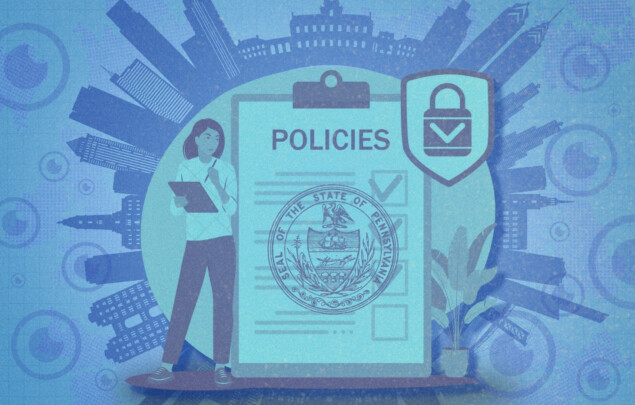A Guide To Pennsylvania’s Consumer Data Privacy Act (PCDPA)
A Guide To Pennsylvania's Consumer Data Privacy Act (PCDPA)

Create a tailored Privacy Policy, Terms & more in under 5 minutes.

A privacy policy is a written statement on how your business collects and uses personal information. It declares to your organisation and to your audience how you approach user privacy.
As the owner of an online business, a privacy policy is one of the most important things to have in order to protect your business and customers. Having one is also a legal requirement in most parts of the world.
A good privacy policy is transparent, easy to understand, and accessible to your users. At a minimum, your privacy policy must disclose the following:
To ensure that your policy doesn’t mislead users or leave your business exposed, we’ve put together a 5-point guideline that we recommend reviewing your policy against:
Are you writing a bespoke policy for one business, or a blanket policy for multiple websites or apps?
Take the time to review all products, services and processes involved — depending on their respective functions and types of data being processed, you may need to create separate privacy policies that specifically cover each of your offerings.
Have you covered all the laws that apply to you and your business? Besides the laws local to your area, consider also where your customers are based, and any additional laws you will need to comply with as a result.
(You can check out our earlier blog posts about the GDPR and CCPA, which are amongst the most widespread and stringent data privacy regulations passed to date.)
Is your privacy policy written in clear, everyday language with visually prominent headings to separate each section? Try not to overdo it with legal jargon or unnecessarily complex language.
Remember, a privacy policy is intended for both your consumer audience and privacy regulators.
As more high-profile data breaches and privacy scandals seem to unfold every day, it’s wise to confront current concerns that users and regulators may have about issues such as email spam, data storage and security.
No part of your policy should be left open to interpretation — it should be as clear and precise as possible. Scan your policy for any ambiguous wording or legal gaps where you should include a limitation of liability clause.
As your business grows and data privacy regulation continues to evolve, so too should your privacy policy.
Just like any other important business document, we advise engaging a legal professional to review your policy and ensure all bases are covered.
As a “one size fits most” solution, our content generators give businesses a head start in developing their own privacy policies. Generate a privacy policy now.